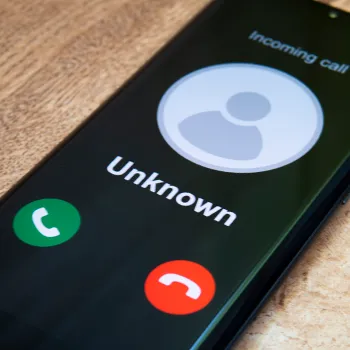

Schmidt & Clark, LLP is not currently accepting these types of cases and has posted this content for information purposes only. We encourage you to seek a qualified attorney, if you feel you might have a case.
Every day, thousands of people across the US are harassed by unwanted phone calls through their landline and cell phone. If you continue to receive telemarketing calls even though you’re on the National Do Not Call Registry, you have a claim for a TCPA lawsuit.
Schmidt & Clark lawyers are experienced in dealing with TCPA class action lawsuits, so today, we’ll explain how you can file a TCPA lawsuit.

TCPA is the Telephone Consumer Protection Act. This is a federal law enacted in 1991 to protect you from unwanted phone calls, such as calls and texts, using an automated dialing system [ 1 ] . It was expanded in 2003 to include the Do Not Call Registry.
Some examples include calls from insurance companies and other survey and debt collection calls using a pre-recorded synthetic voice without your prior consent.
“The TCPA restricts the making of telemarketing calls and the use of automatic telephone dialing systems and artificial or pre-recorded voice messages. The rules apply to common carriers as well as to other marketers.” FCC official website
TCPA was revised in 2012, so now it requires prior express consent or an established business relationship to exist before a consumer can be called. TCPA lawsuits often happen when companies and salespeople won’t stop the unsolicited calls and harassing text messages to consumers.

Anyone can file a TCPA suit as long as certain factors are met, such as if you’ve:
All of these violate the federal statute, and you have a claim against a company or a person.
Note : Even if you have an established relationship with a company or gave consent to be contacted, there are Telemarketing Sales Rules, which protect you from an unsolicited call [ 2 ].
You can file the lawsuit individually under The Consumer Protection Act (TCPA), or a group of plaintiffs can bring a class-action lawsuit.

Filing a TCPA complaint is fairly simple and can be done online. To stop unsolicited calls, go to the Do Not Call Registry website and add your phone numbers.
If you still continue to receive calls on your cell phones and landline, you can file a complaint on the Federal Communications Commission (FCC) website:
If none of these work, and you still experience TCPA violations, you should contact a lawyer. A lawyer will give you legal advice and answer any questions you may have. Also, TCPA is a federal law, so the lawsuits against robocalls will be filed in federal court.
A good law firm will help you gather all the evidence, such as an unsolicited text message, and present your case in the best way.
You can get monetary compensation for unsolicited phone calls and text messages if you file a lawsuit. TCPA damages allow you to get $500 per violation and up to $1,500 if the lawyer can prove the company willingly violated the TCPA. For example, if you’ve requested a company to stop calling and they continue to call.
To sue for a TCPA violation, you should get a lawyer and make sure you have proof of violation. Record communication between you and the business you want to sue, such as calls and voice messages, and have screenshots of messages.
Unwanted calls and messages are disruptive and harassing. Unless a business has your written consent, they don’t have the right to contact you if your number is on the Do Not Call Registry.
However, many businesses don’t follow this rule. In this case, you have the right to sue the offending company. Schmidt & Clark lawyers will provide a free and confidential consultation and explain what legal action you can take.
Contact us to schedule a free consultation as soon as today.
References: